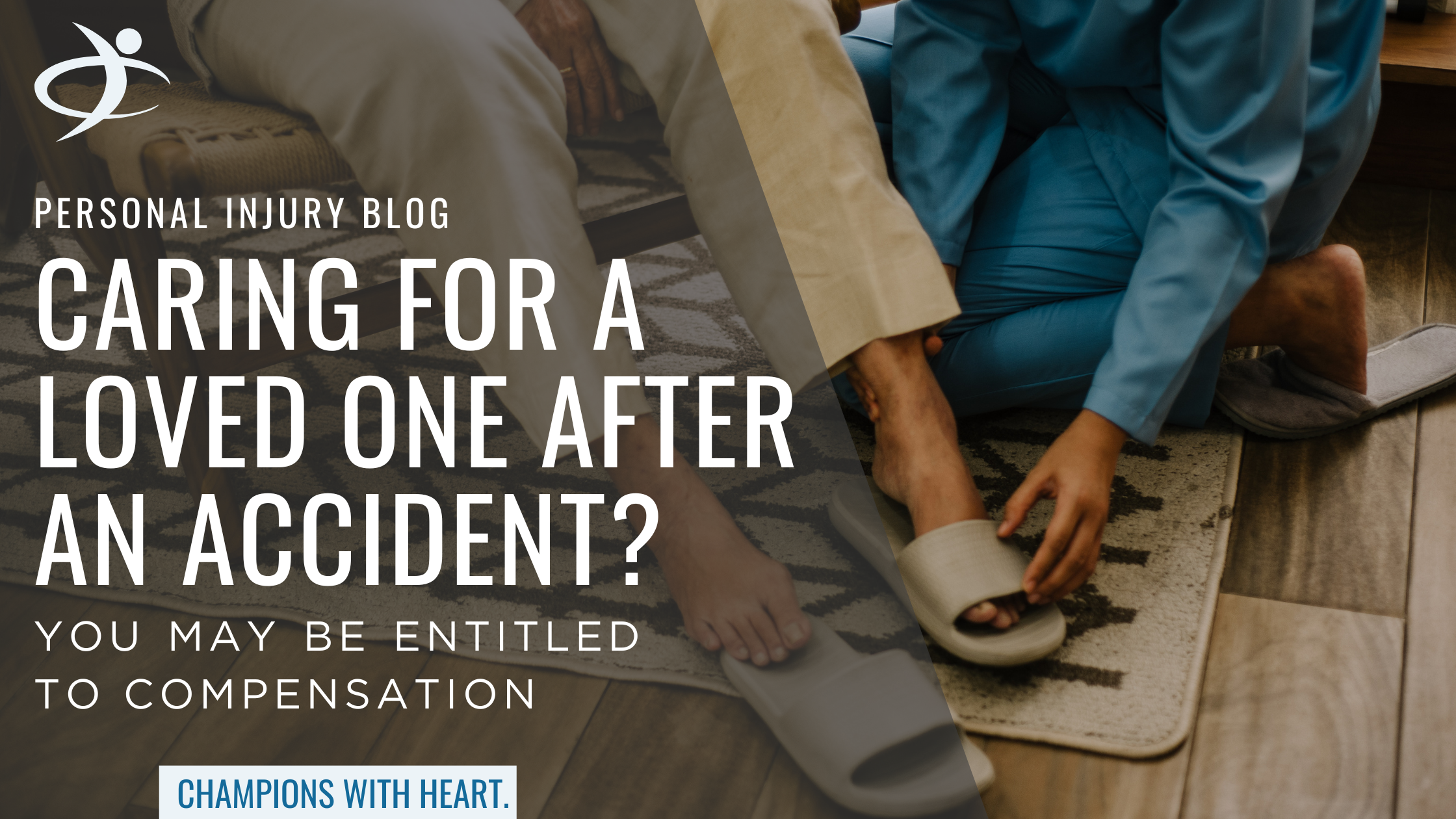
When an individual is seriously injured, family and friends often take on caregiving roles. From driving to appointments to assisting with daily tasks and even providing supervision, they frequently dedicate a significant amount of time to the injured person’s recovery. You may be surprised to learn that the value of this care is legally compensable. You can seek compensation for this care through what’s known as a past attendant care claim, and it can be a large part of a personal injury lawsuit.
What Is a Past Attendant Care Claim?
A past attendant care claim forms part of a tort action, which is a lawsuit launched against the party responsible for the accident. The claim simply seeks compensation for the unpaid care provided to the injured person from the date of the accident up until trial. The courts have recognized care tasks to include dressing, bathing, mobility assistance, nighttime monitoring, general supervision, and much more.
Courts recognize this care as a compensable loss, even if it wasn’t provided by a professional or paid caregiver. In Andrews v Grand & Toy, the Supreme Court of Canada confirmed that compensation for attendant care is based on the need for care, not whether the caregiver was paid or had formal training.[1] This principle was affirmed in Pelletier v Ontario, where $50,000 was granted to a family that provided informal care with minimal documentation of the services they provided.[2]
How Is the Value Calculated?
Courts usually assess the value of these claims based on what it would have cost to hire a professional, such as a Personal Support Worker (PSW). If the market rate for a PSW in your area is $35 per hour, that rate would commonly be used to calculate damages by multiplying it by the number of hours of care provided. In Boone v O’Kelly, the court awarded over $1.5 million to a family that provided consistent care to their seriously injured son over several years, based on this kind of calculation.[3]
If the caregiver has professional qualifications, such as nursing training, and the care provided reflects that expertise, courts may apply a higher hourly rate to account for the specialized skills involved. However, clear evidence must show that the services required those advanced skills.
Do You Need Detailed Records Outlining the Care Provided?
Not necessarily. While detailed documentation can help increase the award, courts have accepted general evidence such as testimony about daily routines to support a claim. The more documentation you have, however, the easier it becomes to justify a higher valuation.
When specific records are lacking, courts may award a lump sum instead of calculating care hour-by-hour. For example, in both Pelletier and Campbell v Roberts, lump sum awards of $50,000 and $75,000 were granted despite minimal tracking of the care provided.[4]
Does the Compensation Go to the Caregiver?
Often, the compensation may be paid to the injured person and held in trust for the caregivers. In
cases where a claim is brought under the Family Law Act by the same loved ones who provided past attendant care, the funds may be paid directly to the family members or friends who provided the care.
Can the Amount Be Reduced?
In some cases, judges apply a deduction of around 30% to reflect business costs like overhead and profit that would not apply to informal care. However, this deduction is not consistently applied. An experienced lawyer can advise you on how this deduction might affect your case.
Final Thoughts
If you or your loved ones have been providing care after an accident, whether informally, without payment, or without professional training, you may still be entitled to compensation for it. Ontario law recognizes the value of this care and allows you to recover its reasonable cost.
We can help you assess your claim and ensure that your family’s efforts are properly recognized. Reach out for a free case consultation here.
[1] Andrews v Grand & Toy Alberta Ltd., 1978 2 SCR 229.
[2] Pelletier v Ontario, 2013 ONSC 6898 (CanLII) [Pelletier].
[3] Boone v O’Kelly, 2021 ONSC 2308 (CanLII).
[4] Pelletier at para 427; Campbell v Roberts, 2014 ONSC 5922 (CanLII) at para 410.

Subscribe to our newsletter
Get free insights delivered right to your inbox
Give us your email address and we’ll send you the latest information on updates to the legal and insurance system and learn how you can make the best recovery possible.
.jpg?width=726&height=440&name=image%2013%20(1).jpg)
Recent Posts
Put our expertise to work for you.
If you or a loved one has been seriously injured, you need a personal injury lawyer who puts client care first and who also knows how to navigate the complex legal system.
Contact Us Now